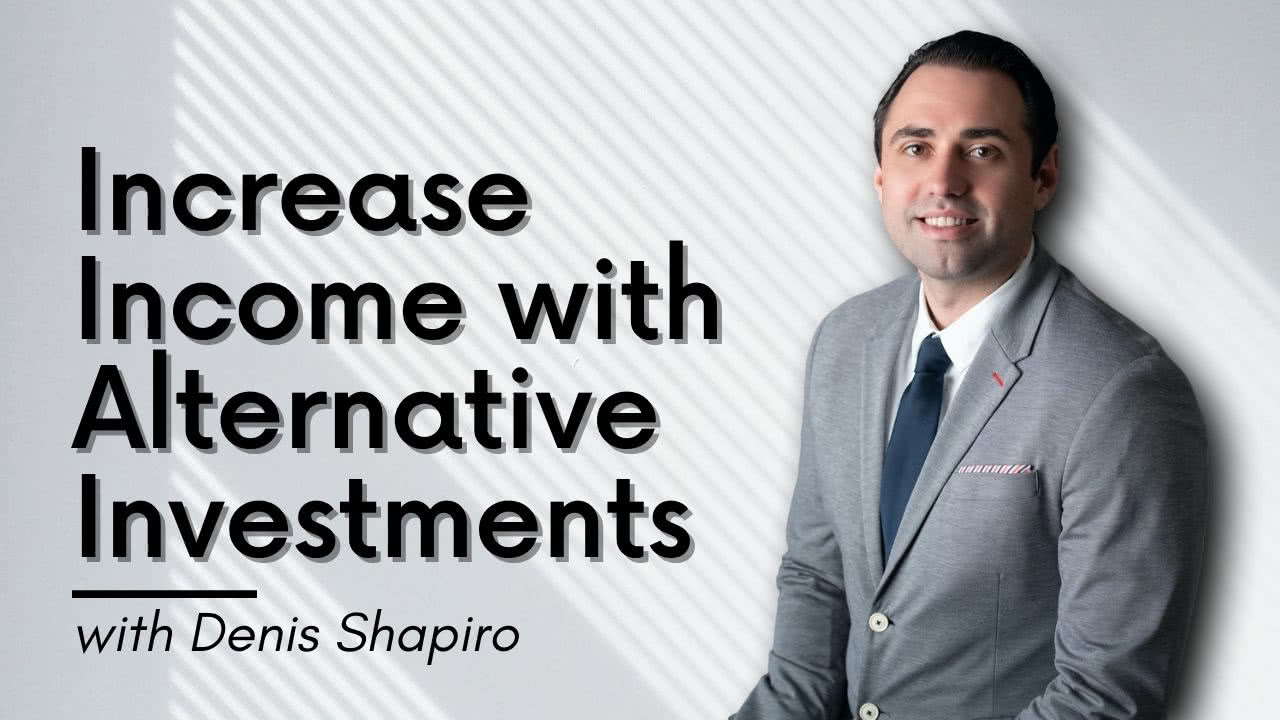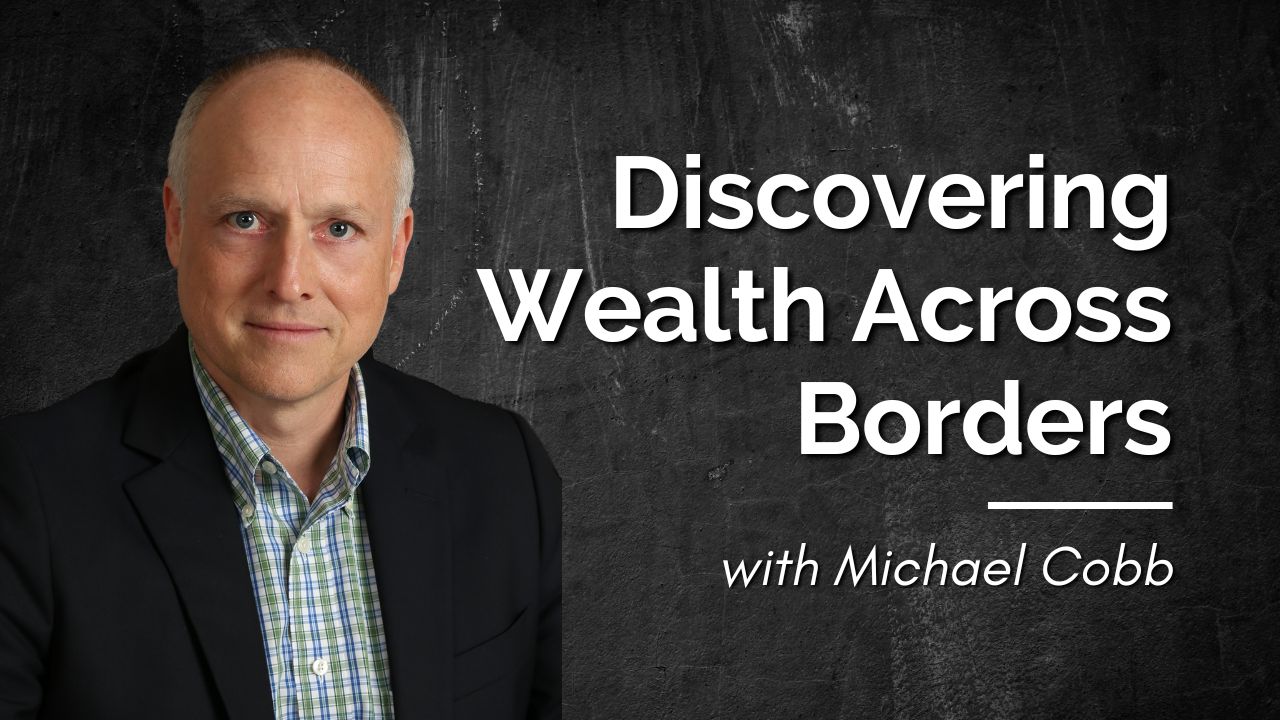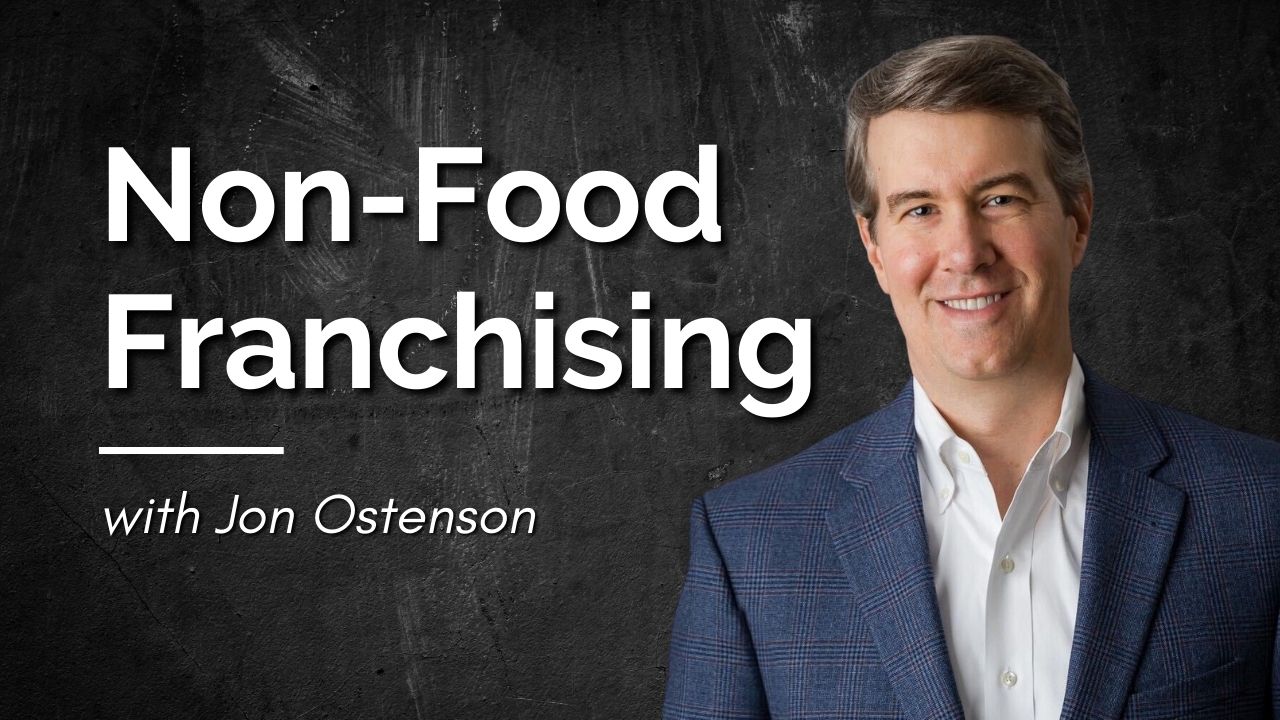
Increase Income Through Alternative Investments, with Denis Shapiro
Are you frustrated with the volatility, fee structure, and abstract nature of most investments? Do you feel that you’ve outgrown the status quo investing strategy and want to play a bigger game with your investing? Have you heard of alternative investments, but don’t know where to get started? Do you need investments that are built for high performers like you, who know it’s possible to increase your income today?
Today, we’re talking with Denis Shapiro, Managing Partner of SIH Capital Group and author of The Alternative Investment Almanac: Expert Insights on Building Person Wealth in Non-Traditional Ways.
So if you want to hear about how one investor in the alternative space is helping others with a simplified strategy to invest for passive income… tune in now!
Podcast: Play in new window | Download (Duration: 41:10 — 47.1MB)
Subscribe: Apple Podcasts | Spotify | Android | Pandora | RSS | More
Table of contents
What IS An Accredited Investor?
Accredited investors have certain investment opportunities available to them that the average person does not. Namely, a number of alternative investments outside of the stock market. So how do you know if you’re an accredited investor?
Accredited investor status is actually defined by your income (or Net Worth). Let’s break it down; you’re an accredited investor, as defined by the SEC, IF:
- You are SINGLE, and have had an income of at least $250,000 for the past two years, with the expectation to keep earning the same or greater
- Your are MARRIED, and have had an income of at least $300,000 for the past two years, with the expectation to keep earning the same or greater
- OR, if you have a Net Worth exceeding $1 million.
If you’re an accredited investor, or on track to become one, you’ll want to stick around to learn more.
Denis Shapiro’s Journey to Alternative Investments
In high school, Denis’ older brother gifted him a copy of Rich Dad, Poor Dad by Robert Kiyosaki. Yet, he was skeptical of the ideas that Kiyosaki brought forth. His key takeaway, however, was that he should start buying assets–which was a mindset his peers did not have.
So, he started with a mutual fund that didn’t do very well.
That’s when he started to look for a different way, and he experimented with different assets. He also dedicated his college career to finance, which overlapped with the housing crash. When he graduated, the job market wasn’t great, so he decided to continue his education and get his MBA. Eventually, he broke into real estate and started building a portfolio that had stocks AND alternative investments.
Having a Portfolio with Stocks AND Alternative Investments
What Denis found when he had a portfolio only made of stocks, was that he couldn’t do it all. He couldn’t have appreciation and income and tax savings. In reality, though, the stock market just doesn’t work that way. You have to have a truly diversified portfolio to have everything—and that means having a portion of investments that aren’t correlated to the stock market. In other words, the performance of those investments doesn’t depend on what the stock market is doing.
The problem with stocks is that the way they perform can depend on too many external factors. Stocks can drop based on rumors, company reinvention, and so much more. Instead of picking stocks, Denis realized that his stock portfolio performed better when he went with an index fund. Yet his income from that portfolio was still lacking.
His epiphany was that in order to get the most from his index fund, he needed to let it appreciate on autopilot. Then, find a different solution to create income that wouldn’t tank at the whims of the market. So he turned to real estate. Real estate is much lower volatility because it’s not traded on a daily or even hourly basis.
The Importance of Building Relationships
Unlike the stock market, many alternative investments rely on relationship building, which can take months or even years. One of the networks Denis Shapiro has built for himself is for investors in apartment buildings. And because he’s spent the time building up relationships, he receives honest feedback about different investors and operators.
These types of relationships can enrich your investing experience in many ways that you won’t find in stock-based assets. Simply because the stock market has too many variables. Real estate, however, has fewer variables. And one such variable is a very human element that depends on good relationships—between landlord and tenant, or investing partners, and more. If you’re looking into non-correlated assets, one of the best places to start is by building meaningful relationships.
An Overview of the Asset Classes
In Denis’ book, he describes the 9 asset classes that investors will come across when they start their investing journey. As he researched his book, he had a huge epiphany: that if you lean the language of one asset class, you can translate it to the others.
For example, if you learn the language of investing in self-storage, you can still apply that to mobile home investments or apartment buildings. There are very few “exclusive” ideas between asset classes, which helps them to play well with each other.
His book offers a very high-level look at the different asset classes, as well as the pros and cons of each. He calls the cons the “bad apples,” because there are Ponzi schemes and slimy deals that occur in these investment spaces. You have to approach them with all the facts, so that you don’t invest in something bad.
[19:20] “Just because one operator in the space gets convicted does not mean that all the operators in the space are bad…For example, in my book I show a Ponzi scheme on an ATM operator. The person alleged 4,000 machines and they only had 400. That’s just crooked, that’s not a fact that the asset class is crooked.”
A Note on Ponzi Schemes
Ponzi schemes are like shadow investments. An investor, for example, could say they have 100 apartment buildings and only have one. When other investors chip in, they pay them wih their own money.
If a deal comes across your table, one way to do your due diligence is to ask for a list of all the properties. You can then take that list to the county or city and look up who owns these investments. This helps you to avoid Ponzi schemes and invest with more confidence. And having good relationships will help with this due diligence.
The Give and Take of Alternative Investments
An important component of building your alternative investment network is being able to GIVE as much as you take. Because while you’re trying to make meaningful connections with people who have something to offer, your colleagues are doing the same.
[22:41]: “I think that a lot of new investors, they fall into a trap of trying to provide artificial value, instead of just letting it come to them…How I started my networking is just really simple. I used LinkedIn to actually learn the language of real estate… and then when I went to a conference I tried to focus on quality over quantity.”
What’s great about building authentic relationships is that you and your connection get a sense for each other’s character. And while you may not have a deal to offer them right away, you learn what they’re looking for and connect people who can help them. That alone is an incredible value you’ve provided. You won’t get any fees or kickback, but it will pay in the long run because it’s authentic and immensely valuable. So let deals unfold naturally, and people will remember that.
Diversify Between Liquid and Illiquid Assets
When building a portfolio, Denis cautions investors not to have too much or too little liquidity. Instead, finding a balance helps you to achieve more control and flexibility when things aren’t going as expected.
For example, you don’t want all of your investments in traded REITs, because during COVID, REITs were down 30-40% and no one was trading. So you don’t want to have everything invested in traded REITs. Non-traded REITs, on the other hand, were more stable.
How to Get Involved in Accredited Investments
[27:45] “I think the best thing to is go in there with your eyes wide open, and understand that…alternative assets tend to be more expensive when you buy them than publicly traded securities…So you have to go in there with expectations that you’re not going to buy anything from day one.”
Denis recommends starting with conferences and events where operators host webinars. When you take in as much education as possible, you can hone in on what you like. Each asset class has a different business model. That’s why it’s important to choose something that resonates with you and your investment style.
Once you break into the space, you can create what Denis calls a calendar space. This involves scheduling quarterly calls so that you can build your relationship and your network. You can meet new operators, do your due diligence together, and build your relationship.
If this is new to you, don’t be afraid to be uncomfortable. If you start small and start taking these baby steps, you’ll learn and grow. Because anything worth doing requires a little discomfort.
Get The Alternative Investment Almanac by Denis Shapiro
This is a concise introduction to each asset class, so that you have a starting point in your education. Denis’ book seeks to demystify the various alternative assets. This allows investors to find their perfect fit and have a jumping off point for their education.
The book released in 2021, and is available on Amazon.
To learn more about alternative investments, you can sign up for an exclusive abridged version of his book. Just visit his website at SIH Capital and click learn more.
You can also reach out directly by emailing Denis@SIHCapitalGroup.com.
About Denis Shapiro
Denis began investing in real estate in 2012 when the market was beginning to recover from the GFC (Global Financial Crisis). He built a cash-flowing portfolio including many alternative assets, such as Note and ATM funds, mobile home parks, life insurance policies, tech start-ups, Industrial property, short-term rentals, and more. He co-founded an investment club for accredited investors in 2019. Following the success of his investor club he launched SIH Capital Group. SIHCG provides accredited investors with a simplified strategy to invest for passive income.
Denis has observed key changes in the alternative asset market in the decade of recovery from the GFC. The JOBS Act of 2012 opened many alternative assets up to everyday investors. However, clear expertise and guidance is still hard to find nearly a decade later.
This observation compelled Denis to write The Alternative Investment Almanac: Expert Insights on Building Personal Wealth in Non-Traditional Ways in 2021. His book is based on his own experience becoming a successful alternative asset investor. It also includes interviews with some of the best alternative asset investors in business today.
Book A Strategy Call
Do you want to coordinate your finances so that everything works together to improve your life today, accelerate time and money freedom, and leave the greatest legacy? We can help!
Book an Introductory Call with our team today https://themoneyadvantage.com/calendar/, and find out how Privatized Banking, alternative investments, or cash flow strategies can help you accomplish your goals better and faster.
That being said, if you want to find out more about how Privatized Banking gives you the most safety, liquidity, and growth … plus boosts your investment returns, and guarantees a legacy, go to https://privatizedbankingsecrets.com/freeguide to learn more.
Discover Wealth Across Borders -Michael Cobb
It is time to discover wealth across borders. Have you ever wondered what it’s like to invest internationally, live as an expat, or find a balance between work and play while enjoying life abroad? In a fascinating episode of our podcast, we sat down with Michael Cobb, a renowned figure in residential resort development and…
Read MoreNon-Food Franchising, with Jon Ostenson
Are you looking for good investment opportunities to put your capital to work? Have you considered franchising as an opportunity for business ownership without starting a company from scratch? Today, we’re talking with Jon Ostenson, a top 1% Franchise Consultant, former Inc. 500 Franchise President and Multi-Brand Franchisee, and author of “Non-Food Franchising.” So if…
Read More



[…] […]